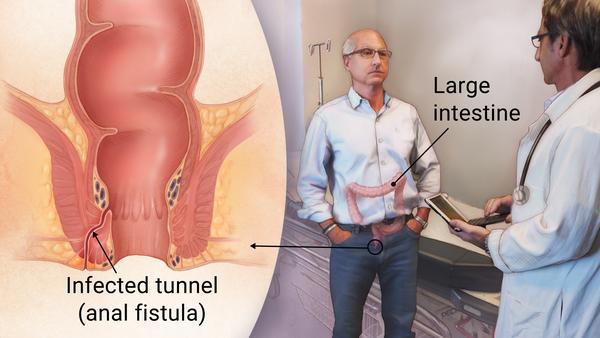While the ‘excrete’ bit of it might look a bit unconventional in this series, yet, that’s how your daily routine is actually, if you think about it. All the activities mentioned are essential to your functioning and the first four are things you talk about very proudly. But, when it comes to bowel movements, there are way too many overpowering emotions to let you speak up.
The first associated emotion is embarrassment. Many people hesitate to talk about it; many actually hold it in if they are with someone significant. People don’t take a dump if they are with someone they are dating, or if their boss is around. ‘What if they find out’ is generally what they think. Are you one of those people?
The question in retrospect is: what if they find out? Isn’t going to the toilet a natural thing? In fact, if that doesn’t happen regularly, that’s when you are in for some serious trouble. In fact, if you are the one to be embarrassed about anything related to your rear end, it’s advisable for you to read through. It’s eye-opening, promise!
More often than not, a sense of embarrassment prevents people from openly talking about problems in their anal region. Shyness to open up about it, fear of getting it checked by a doctor and a general laziness add to the problem. Again, are you one of those people?

Pooping might be a private thing, but imagine sitting on the pot for an agonisingly long time with no results. You’re sure not to like that, but you also console yourself thinking it’ll happen later. When this becomes a routine and the longer time also transforms into a painful affair, you definitely know something’s wrong.
What Could Be Wrong?
To begin with, there could be several things causing you trouble. One of them could be anal fistula. That word scares you, right? As scary as it might sound, you need to understand that it could just be the preface to bigger issues lurking behind it.
There are several glands that make up your body. Obviously, your anal tract is also made up of them. These glands contain fluids and serve several purposes, which we could talk about in another blog. There are times when these glands get clogged, causing a bacterial build-up inside. This causes swelling, trapping the fluid inside.
It’s almost like a balloon, of course, of a much smaller size. Now, imagine, if you keep filling the balloon with air, what is likely to happen? It can no longer contain the air and will end up bursting, right? In this case, the filled-up part, also known as an abscess, will find a small opening in the outer surface and begin oozing the fluid. The channel that connects the abscess and the punched opening is what is called a fistula.
Do You Have A Fistula?
Nobody can answer that question for sure other than a doctor. However, let’s understand what the typical symptoms could be. Before that, here are a few questions for you to answer.
- Is pooping a painful affair? Now, answer carefully as it could be because of constipation, too. The key problems to identify here are:
A. Is the pain a regular thing?
B. On a scale of 1-10, how bad is it? - Are you bleeding? Notice your poop well.
- Is there any swelling in your rear end? If yes, has it been long?
- Do you notice anything liquid oozing out of your anus? Does it smell bad?
The moment you have answered in the affirmative to at least one of these questions, you should plan to visit a good doctor to help you. You could have an anal fistula.
Anal Fistula and Cancer: Here’s Why You Should Visit Your Doctor
If you have an anal fistula and you’re still mulling on whether you should go to the doctor or not, here are some reasons why you shouldn’t be wasting any time at all. First up, it’s an extremely painful condition. It prevents you from excreting well, which eventually will impact your diet, too. This could lead to not just painful pooping, but also to tiredness and acidity due to the insufficient diet. That’s a whole other problem altogether.
Why you should immediately book an appointment is also because an anal fistula could be hiding some really bad news. Even though this part of the blog might feel like just another Google search with says every small symptom could be of cancer, yet, we’ve got to say what we have to say. Anal fistulas could be a sign of cancer and you won’t know till you go to a doctor.
While an anal fistula may be a symptom of a cancer existing elsewhere in the excretory system like the colon, anal fistulas in themselves may house the cancer. This means, the tract with the swelling could have the cancer. In fact, cases of chronic fistulas could be indicative of cancers. Leaving an anal fistula untreated is also known to lead to cancers. Therefore, it’s best to consult a doctor and clear the air as a precautionary method.
About Smiles IICP:
Smiles International Institute of Colo-Proctology (Smiles IICP) is a pioneer in innovation in the field of colorectal treatment and surgery. It thrives to end the sufferings of the patients with colorectal problems. Creating the subject experts and overall awareness among the clinicians, medical fraternity and in the society is one of its core objectives. SIICP gained the best results of cumulative efforts of both the surgeons. Training and familiarization with the best practices in the world inspired them to ensure the advance facilities and state-of-the-art technology for the treatment of disorders including the colon, rectum, and anus with the help of certified surgeons and medical practitioners.
To conclude, here is a question for you:
Would you rather go through a painful life affecting your overall health and risk cancer, or go to the doctor and relieve yourself and prevent serious diseases?

If your answer is the latter, then book an appointment with Dr. Parameshwara C M, Chief, Smiles Hospital, who is one of the best colo-proctologists, using state-of-the-art technology fuelled by his rich experience in treating such cases with minimal discomfort.





